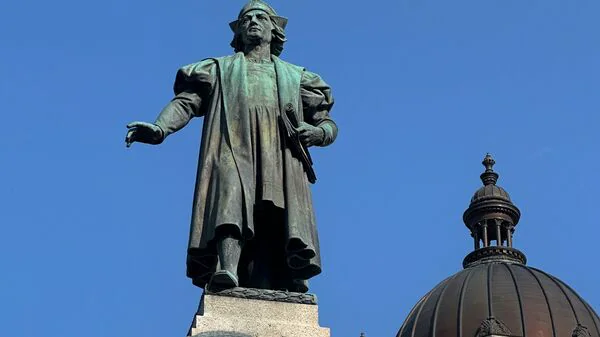
Columbus Day 2025: Date, History, And Significance
The holiday celebrates Columbus's contributions to exploration and the Age of Discovery, as well as Italian-American heritage. However, in recent decades, the observance has become controversial due to the historical consequences of European colonization on Indigenous peoples.
Historical backgroundFirst celebrations: The first formal celebration of Columbus's landing occurred in 1792 in New York City, organized by the Columbian Order (Society of St. Tammany).
National holiday: US President Franklin D. Roosevelt declared Columbus Day a national holiday in 1937.
Italian-American Heritage: Columbus, a native of Genoa, Italy, became a symbol of Italian-American pride, especially following the mass lynching of 11 Italian Americans in New Orleans in 1891. President Benjamin Harrison commemorated Columbus's 400th anniversary in 1892 as a one-time national observance.
Modern observance: Columbus Day honors Columbus's voyage, the connection between the Old and New Worlds, and Italian-American contributions to US society.
Significance of the voyageColumbus persuaded King Ferdinand and Queen Isabella of Spain to sponsor his westward voyage in search of trade routes to Asia. On October 12, 1492, he landed in the Bahamas (San Salvador). While he was not the first European to reach the Americas, his journey sparked extensive European exploration and colonization of the New World.
Controversy surrounding Columbus DayWhile Columbus Day celebrates exploration, critics argue it overlooks the negative impact of European colonization on Indigenous populations, including:
-Spread of disease
-Enslavement
-Genocide and displacement of Native peoples
As a result, some cities and states have chosen to celebrate Indigenous Peoples' Day instead or alongside Columbus Day. This observance recognizes Native American cultures and contributions, acknowledging the injustices they suffered during and after European colonization.
Indigenous Peoples' DayFirst celebrated in the late 1980s, the holiday honors the history and culture of Native Americans.
President Joe Biden officially recognized Indigenous Peoples' Day in 2021.
The holiday may replace or coincide with Columbus Day depending on the state or local jurisdiction.
Also Read | Columbus Day 2025: What's open and closed? Legal Disclaimer:
MENAFN provides the
information “as is” without warranty of any kind. We do not accept
any responsibility or liability for the accuracy, content, images,
videos, licenses, completeness, legality, or reliability of the information
contained in this article. If you have any complaints or copyright
issues related to this article, kindly contact the provider above.


















Comments
No comment